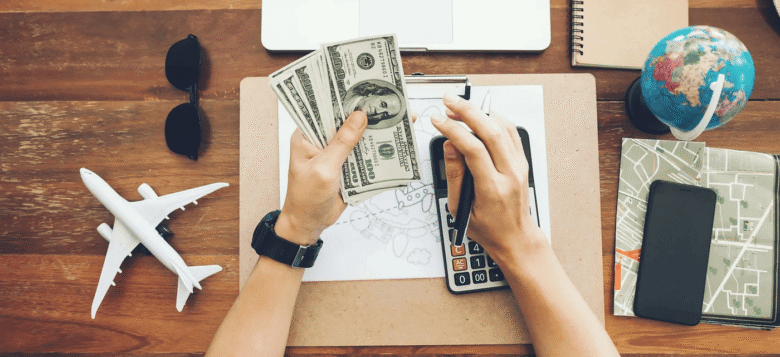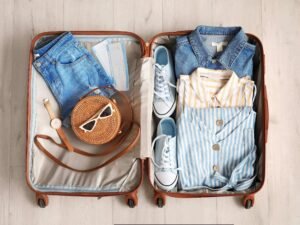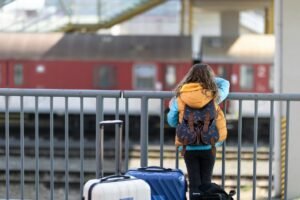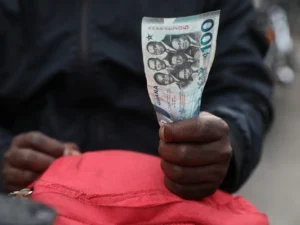Ghana is one of West Africa’s most affordable and rewarding destinations. From vibrant markets and golden beaches to historic castles and rich cultural festivals, the country offers a wealth of experiences that don’t require a fortune. With a little planning, you can enjoy Ghana’s highlights while sticking to a modest budget.
This practical guide outlines how to explore Ghana without overspending—from cheap transport tips to free attractions and money-saving strategies that seasoned travelers use.
1. Plan Your Trip During the Shoulder or Off-Season
Travel costs in Ghana spike between November and early January, when events like Afrochella, Detty December, and Christmas festivities attract large crowds. Accommodation and flight prices rise dramatically.
Best Budget-Friendly Periods:
- April–June (early rains but manageable)
- September–October (post-rainy season, lower tourist traffic)
During these windows:
- Hotels often offer discounted rates.
- Attractions are less crowded.
- Transportation is easier and cheaper to negotiate.
2. Use Public Transport Like a Local
Transportation is one of the biggest ways to save money in Ghana—if you travel like a local.
Budget Options:
Trotros (Minibuses)
- Cost: GHS 2–10 (under $1)
- Best for: Short city-to-city trips, commuting within towns
- Downside: Crowded and not air-conditioned
Intercity Buses (STC, VIP, OA)
- Cost: GHS 70–300 ($5–$25) depending on distance and class
- Safer and more comfortable for long-distance travel
- Book early for discounted or promotional fares
Shared Taxis
- Cheaper than private taxis
- Follow fixed routes and only depart when full
- Confirm destination and price before entering
Avoid: Airport taxis or unmetered rides near tourist sites without negotiation—they’re often overpriced.
Insider Tip:
Use Uber, Bolt, or Yango in Accra or Kumasi for predictable pricing and safety. You can also split rides with fellow travelers to cut costs.
3. Stay in Budget Accommodations
Ghana has a wide range of lodging options that fit every budget. Instead of luxury hotels, try:
Affordable Stay Options:
- Guesthouses and Hostels: As low as $8–$25/night
- Airbnb: Private rooms for $15–$30/night
- Backpacker lodges in Cape Coast, Kumasi, and Mole
- University Guest Houses: Affordable, especially during student breaks
Recommended Budget-Friendly Areas:
- Accra: Osu (hostels), East Legon (Airbnbs), Adabraka (guesthouses)
- Cape Coast/Elmina: Many beachside budget options
- Kumasi: Around Kejetia or Amakom
- Tamale: City center guesthouses or Mole Motel near Mole National Park
Always read reviews and check if utilities like WiFi and running water are consistent.
4. Eat Where Locals Eat
Ghanaian food is delicious, hearty, and cheap—if you avoid tourist restaurants.
Top Budget Meals:
- Waakye (rice and beans) – GHS 5–15
- Kenkey and fish – GHS 5–10
- Banku with soup/stew – GHS 10–20
- Jollof rice with chicken – GHS 15–25
- Street snacks: Kelewele (spicy fried plantain), boiled eggs, roasted maize – GHS 1–5
Best Places to Eat Cheap:
- Chop bars – Local canteens serving fresh Ghanaian food
- Street vendors – Found near markets and transport hubs
- University campuses – Affordable meals for under $2
Avoid drinking bottled soda and imported drinks regularly—opt for sachet water (GHS 0.50), local juices, or coconut water for hydration on a budget.
5. Focus on Free or Low-Cost Attractions
Ghana offers many natural and cultural sights that cost little or nothing.
Free or Cheap Experiences:
| Experience | Location | Cost |
|---|---|---|
| Walk Jamestown’s colonial streets | Accra | Free |
| Relax at Labadi or Kokrobite Beach | Accra coast | GHS 10 or free |
| Explore Kejetia Market | Kumasi | Free |
| Visit Independence Arch & Black Star Square | Accra | Free |
| Hike Aburi Botanical Gardens | Eastern Region | GHS 10–15 |
| Attend local festivals (Homowo, Chale Wote) | Accra, Cape Coast | Mostly free |
| Tour Manhyia Palace Museum | Kumasi | GHS 10–30 |
| Explore forts like Fort St. Jago | Elmina | GHS 5–10 |
Many attractions are cash-only, so keep small bills (GHS 1–20) on you.
6. Limit Costly Tours and Excursions
Tour operators often charge a premium for guided experiences. While some tours are worth it, many activities can be done on your own or with public guides on-site.
When to DIY:
- Cape Coast and Elmina Castles: Use official guides on arrival (GHS 40–60)
- Kakum National Park: Walk-in and join group canopy tours
- Mole National Park: Use in-house rangers for game drives instead of third-party tour operators
Avoid booking through third parties unless you’re venturing into hard-to-reach places.
7. Use Mobile Money and Budget Apps
Avoid transaction fees and currency exchange risks by using Mobile Money once you get a local SIM (e.g., MTN or Vodafone). You can:
- Buy data and airtime
- Pay for rides, meals, and accommodation
- Transfer money safely without a bank
Tools to Track Your Expenses:
- Trail Wallet
- TravelSpend
- Excel/Google Sheets (offline backup)
Keep an offline record of daily spending in GHS to stay within budget.
8. Buy Souvenirs at Local Markets, Not Tourist Shops
Souvenir prices near airports or castles are marked up for tourists. To get the same items at half the price:
- Visit Makola Market (Accra), Kejetia Market (Kumasi), or Arts Centre (Accra)
- Negotiate respectfully—start at 40–50% below the asking price
- Buy from cooperatives or women-led stalls, which often have fairer pricing
Don’t feel pressured into buying. Browse different shops before making a decision.
9. Travel with a Reusable Water Bottle and Snacks
Buying bottled water and snacks daily can add up. Carry a filter bottle or use boiled tap water (if safe at your accommodation). Stock up on:
- Plantain chips
- Groundnuts (peanuts)
- Biscuits or gari soakings
- Fruits like oranges, mangoes, and bananas from roadside vendors
Estimated daily food & drink budget: GHS 30–60 ($2–$5)
10. Connect with Local Travelers or Expat Communities
Join Facebook groups like:
- “Backpacking Ghana”
- “Ghana Travel Advice”
- “Expats in Ghana”
These communities often post free event alerts, share safe but cheap lodging, or organize group trips to cut down on transport costs.
Sample Daily Budget for a Low-Cost Trip
| Category | Estimated Cost (GHS) | USD Equivalent |
|---|---|---|
| Dorm/Guesthouse Stay | 60 | $5 |
| Meals & Snacks | 40 | $3.50 |
| Transportation | 30 | $2.50 |
| Attractions & Entry Fees | 20 | $1.70 |
| Total | GHS 150 | ~$12/day |
Final Budget Travel Tips
- Carry small bills (GHS 1, 2, 5) for food, transport, and local entry fees.
- Avoid travel late at night—more expensive and riskier.
- Use offline apps (maps.me, Google Translate, XE Currency) to navigate and plan.
- Ask locals for prices before accepting offers. Friendly doesn’t always mean fair.
Conclusion
You don’t need a luxury budget to enjoy Ghana’s rich history, warm hospitality, and cultural treasures. By traveling like a local, staying in affordable accommodations, eating street food, and skipping overpriced tours, you can experience Ghana authentically and affordably.
With thoughtful planning and an open mind, $10–$20 a day is all it takes to have a safe, enriching, and memorable journey through Ghana.




